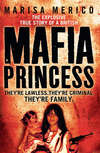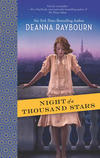Kitabı oku: «Mafia Princess»
Mafia Princess
THEY’RE LAWLESS.THEY’RE CRIMINAL.
THEY’RE FAMILY.
Marisa Merico
with Douglas Thompson

FOR LARA AND FRANK
‘The family – that dear octopus from whose tentacles we never quite escape nor, in our inmost hearts, ever quite wish to.’
DODIE SMITH,
I CAPTURE THE CASTLE, 1948
‘But I don’t want to go among mad people,’ Alice remarked.
‘Oh, you can’t help that,’ said the Cat:
‘We’re all mad here. I’m mad. You’re mad.’
‘How do you know I’m mad?’ said Alice.
‘You must be,’ said the Cat. ‘Or you wouldn’t have come here.’
LEWIS CARROLL,
ALICE’S ADVENTURES IN WONDERLAND, 1865
Table of Contents
Cover Page
Title Page
Dedication
Epigraph
FOREWORD
CHAPTER ONE GUCCI GUCCI COO
CHAPTER TWO WONDERLAND
CHAPTER THREE MARLBORO WOMAN
CHAPTER FOUR ROOM SERVICE
CHAPTER FIVE GUNS AND ROSES
CHAPTER SIX COUNT MARCO AND THE DAPPER DON
CHAPTER SEVEN THE GOOD LIFE
CHAPTER EIGHT ROMEO
CHAPTER NINE STREET JUSTICE
CHAPTER TEN MAFIA MAKEOVER
CHAPTER ELEVEN CAT AND MOUSE
CHAPTER TWELVE BETTER OR WORSE
CHAPTER THIRTEEN LA SIGNORA MARISA
CHAPTER FOURTEEN RAINY DAYS IN BLACKPOOL
CHAPTER FIFTEEN WHO’LL STOP THE RAIN?
CHAPTER SIXTEEN LA DOLCE VITA
CHAPTER SEVENTEEN MEAN STREETS
CHAPTER EIGHTEEN BORN AGAIN
CHAPTER NINETEEN FAMILY VALUES
CHAPTER TWENTY DREAMLAND
POSTSCRIPT GUN LAW
ACKNOWLEDGEMENTS
Copyright
About the Publisher
FOREWORD
‘Dream as if you’ll live for ever, live as if you’ll die today.’
JAMES DEAN, 1954
They shot dead my godfather with a 7.63 calibre pistol as he sat in his favourite barber’s chair waiting for a wet shave.
An explosive bullet from a high-precision rifle blew the top off my dad’s cousin’s head as he left his house, in the hurried moment between his front door and his armour-plated car.
An uncle of mine was gunned down by automatic fire as he was serving wine in his café-bar one lunchtime.
Soon after, the man who issued the orders for these murders was killed while in protective custody, as he took his Sunday morning exercise in the prison yard. A marksman aiming from a building outside the prison walls put a rifled, explosive bullet in his forehead.
With nearly seven hundred combatants and innocents already dead, the violence was escalating every day and my family was suffering. Which was why, at the age of nineteen, I agreed to drive South with a consignment of military weapons packed into the secret compartments of the family’s customised Citroën, the one that was usually used to traffic heroin.
We stacked machine pistols, handguns and rifles, clips of ammunition, bullet-proof vests and jackets on top of the heavier hardware: Kalashnikovs, those awesome AK-47S which can spray out 650 rounds a minute, and bazookas that toss armour-plated vehicles into the sky.
It was like packing your sweaters and skirts first in a holiday suitcase, having all the ironed stuff lying flat, your toilet bag and shoes stashed in the corners.
I was too young to understand the complexity of everything that was happening, and too dizzily in love with the boyfriend who came with me to feel scared – even when the carabinieri stopped for a chat alongside our car, where we had stashed away enough weaponry to start World War Three.
We didn’t have a fear in the world. It was just like going on a family summer holiday.
After our delivery, the war became even more intense. The rival families didn’t have the contacts to get military weapons like the Yugoslav bazookas we’d brought. Hit squads operated as four-men units: a driver, a shooter with a 12-gauge automatic Benelli, renowned in the lethal mechanics of urban warfare, two men with machine pistols. Russian RPGs, the antitank grenade launchers, were around. There were also arson teams to burn out the rivals who were taken down by rifle fire as they struggled to flee the flames.
Still it wasn’t all one way. Uncle Domenico – a lovely, lovely man, full of laughter and fun, my Nan’s brother, one of my favourite uncles – was shot dead as he strolled onto his bedroom balcony to smoke a cigar.
How many people have relatives who are shot and killed? I grew up with it.
These were insane times.
It was violence against violence and even then it was clear to me that the winner is the one who has the more homicidal equipment. And intentions.
I’ve learned such things for, even before I was born, violence was vital to my life.
It got me born.
CHAPTER ONE GUCCI GUCCI COO
Fidarsi è bene, non fidarsi è meglio.
[To trust is good, not to trust is better.]
ITALIAN SAYING
I was born on my Nan’s kitchen table. I emerged reluctantly, just in time for breakfast, in the middle room of her house in the Piazza Prealpi in Milan.
It was the same table on which my Nan had given birth to her twelve children, including her youngest, Angela, who’d arrived just four weeks earlier.
My mum didn’t have any contractions. She was taking her time to deliver me and Nan’s household wasn’t used to that.
‘Push! Push, push!’ Nan’s friend Francesca the midwife shouted at her.
Mum wasn’t pushing, not at all. She didn’t know what all the fuss was about. She was in a haze. She had no energy left. She’d been in labour for more than twelve hours.
‘Go on, push!’
Nan couldn’t understand the delay. When she’d given birth to Angela the month before, the production line had been as smooth as ever. This silly English girl on the kitchen table just didn’t have a clue how to have babies. Shouting wasn’t helping. The family had been up most of the night; they wandered around, yawning, trying to stay alert, but the coffee had stopped working hours before.
Now, at 8 a.m. on Thursday the 19th of February 1970, they’d had enough. Certainly my grandpa Rosario Di Giovine had. He wanted his breakfast.
‘Nothing’s happening, nothing at all,’ said Nan.
Grandpa rolled up his sleeve: ‘Right, come on! Come on, my girl…Vai! Vai!’
He gave Mum a real slap on the leg. Then another, harder, on the backside: ‘Come on – let’s have you.’
Mum pushed.
I arrived at 8.09 a.m.
Grandpa went off to eat, as if nothing had happened. My nan went to a cupboard at the side of the room. The midwife swaddled me in cotton cloths, and Nan returned with a purple cashmere Gucci blanket, a gift from an associate, and wrapped me up in it.
It was appropriate. I’d been born into the Mob. I was a Mafia Princess.
My mum didn’t have a lot of milk, so Nan breastfed me a few times. I loved my nan. I was always her favourite. Yet that Gucci blanket was no glass slipper. My early life was more like Cinderella’s before the prince came on the scene. And certainly no fairytale.
As I grew up, the family were ferociously pursuing their business, and that involved a great deal of guns and drugs and death. For my father’s family it had always been that way.
Nan was a pure bloodline Serraino, born in Reggio Calabria to one of the legendary ’Ndrangheta clans that make up the Calabrian Mafia. Pronounced en-drang-ay-ta, it translates as honour or loyalty, and loyalty to the family (or ’ndrina) is in the blood, flowing through their veins.
Nan can’t sign her name – she uses an X on documents – but she is one of the most remarkable Mafia figures of the past few decades, known widely as La Signora Maria, the Lady Maria. The authorities are ever so complimentary about her. I’ve seen Italian legal paperwork that ranks her the most dangerous woman in Italy.
I was named after her – Maria Elena Marisa (Di Giovine) – but people always called me Marisa; to avoid confusion, they said. Confusion? That was a good one. La Signora Maria is unique.
You don’t join the ’Ndrangheta; your membership is ordained. All Nan’s children knew the laws of such an indigenous and territorial Mafia family. They saw it as kids in Calabria, where my nan learned the gospel of violence first hand. People think that men run everything in the Mafia and the little woman isn’t even allowed to stir the pasta sauce. About half an hour’s sail across the Strait of Messina in Sicily, home of the Cosa Nostra, female roles were more like those you see in the movies, but in Calabria’s ’Ndrangheta, built for more than 150 years on the blood family, women have always been heavily involved in both the kitchen and the crime. There are even sisters in omertà – the Mafia code of silence. There are stories of initiation ceremonies for women not born into the family to be formally accepted. Blood relations and family ceremonies such as weddings, communions, christenings and funerals, are the core of the life. And death. There wasn’t ever a grey area with my nan. Nothing ambiguous about La Signora Maria.
She was the boss, the ultimate law.
And Pat Riley from Blackpool’s mother-in-law.
Mum was a stunner – blonde, shapely and fun to be around – but brought up in the suburbs of north-west England to be practical and sensible. Up to a point. She’s always been determined, her own person. The Blackpool Illuminations were never going to be the only bright lights in her life.
Patricia Carol Riley is a baby boomer, born on 17 January 1946, a little more than a year after her father, Jack Riley, returned from his wartime service in the ambulance corps. He and Grandma Dorothy had two more daughters, Gillian and Sharon. Granddad worked as a greengrocer, and Grandma had two jobs, one in a grocery store and another at the local Odeon. The long hours finally allowed them to buy themselves out of a council estate and into their own home for the sum of £3,000.
A treat for the girls was salmon paste sandwiches and tea on the beach next to Blackpool Promenade. It was a good life but quiet, ordinary. There were never going to be any surprises. It’s easy to understand that it got boring for a bright teenager like my mum.
She has her artistic side, she has an ‘eye’. She’s absolutely brilliant at art. She’s got an ‘A’ level in it and could have taught it but her dad wouldn’t let her go to art college. He thought it would be a waste of time – a degree and then she’d be off to get married and have kids. He and my grandma just wanted husbands, not complications, for their girls.
Mum was fed up. She liked her job as a window dresser for Littlewoods in Blackpool but she felt she was going down a predictable road, which she had to somehow turn off. As Monday to Friday rolled along she felt more and more trapped. She had a nice boyfriend: Alan, tall, good-looking and someone you could take home to fish fingers for tea. It wasn’t hot passion. When Alan started talking marriage, the alarm bells went off. There had to be something more, hadn’t there? Brenda, her best pal, had found that working as an au pair in America. Or so she said in her many gossipy blue airmail letters about the boys and the wild nights out.
‘America? Never!’ screamed Grandma Dorothy. ‘What’s wrong with life here? It’s good enough for the rest of us.’
But it wasn’t for Mum. She felt she’d been nowhere, done nothing. And, strangely, she didn’t belong. She was searching for something that she, never mind her mum and dad, couldn’t understand. She dismissed her parents’ predictions that she’d be bored and homesick. But she respected them enough to compromise about going to America. She read an advertisement in the Lancashire Evening Post placed by an Italian company that employed English au pairs. The catch was she had to get to Italy to get the job. Her mum and dad reluctantly gave their blessing – Italy was better than flying across the Atlantic – and after eleven long weeks of Saturday night telly, spending nothing, going nowhere, she had the fare to Milan.
‘Our Gracie’, her Nan’s favourite old-time singer Gracie Fields, who’d been born over a fish ’n’ chip shop in Rochdale, Lancashire, now lived in Capri. That was Italian! It was all very well to go to America, she thought, but at least with Europe it would be easier to get back home if she hated it. She arrived at Milan’s Malpensa Airport with thirty pounds, not one word of Italian, and the astonishing high hopes and optimism of a twenty-one-year-old Lancashire lass.
She was a sensation. In 1967, blonde English girls were still something of a novelty. And she had an instant friend, Ada Omodie, who was eighteen years old and the eldest of the four children she’d been hired to look after. They were soon in a bartering relationship: Pat helped Ada with her English and Ada taught Pat Italian.
It was La Dolce Vita. Pat and Ada would go shopping together, and she went on holiday with the Omodie family to Rimini where they had their own villa. Guests included Giovanni ‘Gianni’ Rivera, a star of AC Milan and the Italian national soccer team. And Pat attracted as much attention as the celebrities at the swimming pool parties. It was something she was getting used to. The Omodie family lived in central Milan and there would be lots of wolf whistles as she walked the kids to school each day, even more when she wandered home on her own. She looked straight ahead, ignored everyone.
Except Alessandro.
He was the lot, the Trinity, tall, dark and handsome: he had an angelic face, like a Renaissance painting from her art books. Pat fell head over heels when she spotted him standing in the doorway of the barber’s shop where he worked. She saw him, and he watched her every school day. But they didn’t speak to each other until one day when Pat was struggling with some brown paper sacks of shopping and Alessandro offered to help her home.
The romance began, her first true love, her first lover. She spent every moment she could with Alessandro: he filled her days, her thoughts and her life. It was that unbearable first love, the one that catches your breath, that’s so intense, so overflowing with energy, it’s a surprise you don’t explode.
They talked in Italian all the time; Pat had learned her lessons. They spent days off and holidays travelling around to Rome, Naples, and most often to nearby Lake Como where they would picnic by the water and he would whisper her name and they’d make love.
When the Omodie family said they were leaving Milan she didn’t go with them but searched desperately for a job close to her man, near Alessandro’s barber’s. She rejected nanny and au pair positions all over the city until one location worked for her. The kids were a nightmare but that wasn’t going to ruin her dream. Alessandro, a young twenty-three years old, was going to do that all by himself.
They were on one of their regular Sunday afternoon trips out to the Lakes. Alessandro was quiet and thoughtful as he laid out their blankets. They’d been together for more than a year and Pat thought he might be going to propose to her.
Instead, she shivered in the sun as he said: ‘Patti, I love you, but I can’t ever marry you. My family have arranged for me to marry someone else. I have no choice, no choice at all.’
Pat couldn’t believe it. It was absurd. Alessandro was from southern Italy, where the culture could be as strict as Islam, but an arranged marriage? In April 1969? She couldn’t, couldn’t understand.
Alessandro tried to explain how serious it was. His parents had discovered he was seeing an English girl. His father was so indignant he took a knife to his son’s throat and hissed, ‘You stay with this English girl over my dead body.’
Alessandro said they had to end their affair then and there. It was over, for ever.
‘I’m so sorry, Patti, but there is no other way. I have no control over it. I have to do what my father is asking me.’
She begged him to change his mind. He could run back to England with her. They could hide in Italy. Go to France. America. It did no good. They were both crying as Alessandro drove them back to Milan. He gave her one final kiss when he dropped her off. It felt cold.
Pat sobbed and sobbed for weeks. She only slept when she was utterly worn out with exhaustion because her mind was spinning, asking questions around the clock. It was really just one question: why?
The only thing keeping her sane was the hope that it was all a mistake: Alessandro would come back to her, the arranged wedding would be abandoned and all would be well.
That was a fantasy; the reality meant more heartache. Friends told her Alessandro had met his future wife and the wedding date had been set. She snapped. The crying stopped. With no more tears left in her, she went to see Alessandro at his barber’s shop. Hysterical, she screamed for her lover to come out.
‘You’ll get me killed, Patti!’ Alessandro shouted back. ‘You’ll get me killed if you do this! Go away before someone sees us.’
He slammed the door in Pat’s face. With a loud crack he threw back the heavy bolt. It went into her heart.
She found the tears again. They flooded out as she limped off down the street. She was sobbing so much she could hardly see the two young guys asking if she was OK, if she wanted a lift home.
Love had turned into frustrated anger and Alessandro, the man she wanted so terribly, was the only one she could take it out on; cursing him, she was thinking in a mixture of English and Italian: ‘Right! I’ll show him what’s what. Vivi il presente.’
Without a thought about what she was doing, she got into the back of what she soon realised was a very smart car. It seemed brand new. She could smell the leather.
The driver, who introduced himself as Luca, said: ‘Momento!’ They had to wait for another friend, just a couple of minutes and they would be on their way. They would look after her, take her home. She mustn’t worry, must stop crying. The other guy, Franco, got in the back of the car with her.
Pat didn’t care as the moments ticked on. She sat silently all wrapped up in her aching upset. It was the end of her world, of her life. She was traumatised. She felt dead inside.
Suddenly, the driver was talking to someone. There was a clunk and a pull at the front passenger door. A short, wiry young man with a flowing flop of black hair climbed in beside the driver.
He twisted, whirled around, and stared at Pat with a naughty grin: ‘Ciao, bella! Ciao, tesora.’ [‘Hi, lovely! Hi, beautiful!]
His name was Emilio. Emilio Di Giovine.
CHAPTER TWO WONDERLAND
‘To be honest, as this world goes, is to be one man picked out of ten thousand.’
WILLIAM SHAKESPEARE,
HAMLET
Luca, the driver, invited Pat to a nightclub and she agreed. She wanted to forget Alessandro. She put on a yellow dress to brighten her spirits and went out intending to have some harmless fun.
That evening Luca’s best pal Emilio Di Giovine once again magically materialised in his tight shirt and tighter pants. He arrived late at the noisy, smoke-filled nightclub, explaining that he’d crashed a borrowed car and the owner was not amused. Emilio was not bothered. As his friends jabbered questions about the accident, he shrugged: ‘It happens.’
His eyes were watching Pat dancing and he was soon making his way across the crowded dance floor to talk to her. It was as if Luca didn’t exist.
‘Do you want me to take you home? Why don’t you go out with me?’ He said he would take her out the following night.
‘You’d better not take me home,’ she said. ‘I came here with Luca.’
But Emilio came round the next night and the two of them went to a funfair. From then on, he kept coming to pick her up, each time driving a different car. They were all spanking new and when she queried this he told her: ‘My dad has a garage.’
After stealing a kiss on an early date he said, ‘Pat, you’re the kind of girl I want to marry.’
Mum was twenty-three years old and she’d heard plenty of chat-up lines so she laughingly brushed this off as nonsense. It was silly, Italian Romeo talk from a boy who was only nineteen years old. Her instinct was to tell him to hop it. Yet it was nice to hear the passionate patter after the heartbreak of Alessandro. It was good for her self-esteem to feel wanted.
And so was his lifestyle. She couldn’t get her head round the new cars: a Porsche on Tuesday, a Mercedes on Thursday and a nippy Alfa Romeo for Saturday and Sunday. There was always something new for the weekend.
‘Emilio, what do you do?’
With a charismatic smile and not a hint of shame, he replied, ‘I race cars and work as a mechanic at my father’s garage.’
As far as Pat was concerned, he might have said he was going to the Moon along with Neil Armstrong and Buzz Aldrin who’d just become the first men to take a stroll up there. It didn’t make sense to her. It was curiouser and curiouser. Their trips around town only confused her more. The flash cars weren’t the attraction. He was like a magnet for people, who hurried over to talk to him as if they just wanted to be seen near him.
Everywhere he went his language was cash but in many bars and restaurants his money was foreign to them; the owners wouldn’t take it, saying their meals and drinks were on the house. He wore bespoke suits, his shirts and ties from the Via Montenapoleone designer shops, his shoes imported, English and cap-toed. He was groomed to perfection, having a wet shave and his moustache trimmed every day at the barber’s. There, his double espresso and his toasted cheese panini were always waiting as he took the central chair, like a celebrity. It was fascinating. She seemed to have stepped into some extraordinary wonderland.
And Emilio was a get-things-done kind of guy. Certainly, when Pat had problems with the family she was working for he was quick to sort things out.
One night after she put the kids to bed, the father tried to get it on with her. Pat realised he was horribly drunk and told him to get lost. She went off to bed in the room where she slept next to his daughter. She woke up with the guy trying to feel her up under the duvet and that was that. She ran out of the house and called Emilio.
‘Pack your stuff,’ he told her. ‘You’re not staying there. What’s he going to do next?’
She went back to get her things but the family wouldn’t open the door to her. When Emilio arrived Pat was a wreck, sobbing outside the apartment building. He took one look and told her to wait in his car. She tried to say he shouldn’t do anything but he took off in a rush of virility.
Within minutes he’d returned with her bags all neatly packed. He’d ‘sorted’ the problem. The sex pest would never bother her again. She never found out what he had said – or done. Emilio had no difficulty finding a girlfriend who would let Pat stay until she found another job. By then they had become very much a couple and Pat found out she was pregnant with me.
They’d been lovers for just sixteen days.
Emilio was delighted and his parents were even more so at the prospect of their first grandchild. Emilio was the adored eldest son and Nan opened the doors of her home to him and Pat.
At that time, Nan’s had two bedrooms, a huge front room, kitchen and bathroom, and eleven kids, aged from nineteen downwards, with Auntie Angela only a few weeks more than a twinkle in Grandpa’s eye. Mum and Dad were given their own bedroom. Nan and Grandpa had the other. The rest had to lump it where they could. It was pandemonium. There were kids everywhere, crying, shouting, screaming, laughing, and they all seemed to be fighting. It was like a coven of hysterical little demons.
‘They’re all mad here,’ thought Pat with a grim grin to herself.
It was all falling into place, as if her destiny was mapped out for her. She had no choice. She wasn’t really in love with Emilio. She was still in love with Alessandro and Emilio was her boyfriend on the rebound. He helped her.
When she was a few weeks’ pregnant she went to Blackpool and told her parents, who were distraught. Where was the man who’d got their girl pregnant? Where was this Emilio? They were horrified, in their quiet, behind-the-curtains English way, at how things had turned out. They had hoped Pat would return quickly after her Italian adventure but she had arrived home to announce she was pregnant and was going back for good to raise their first grandchild. Their big, repeated question was: ‘Who is this Emilio?’
Pat didn’t tell them because she still wasn’t sure herself. Instead she offered: ‘He’s a good man. He’s looking after me. I’m happy.’
And deep down Pat really hoped she would be.
When she returned to Piazza Prealpi, she started getting affectionate with his parents, with all the brothers and sisters, learning much if not all about the family’s history. Her emotions were all over the place, but she wanted to belong, to make it work with the young Emilio and the baby that was on the way. She’d never met a man quite like him before.
‘Better,’ he’d always say, ‘to live like a lion for one day than live like a sheep for one hundred years.’
Yet even in the Mafia, there were questions of propriety. Nan put pressure on Emilio to ‘do the right thing’.
Only eighteen days after I was born, on 9 March 1970, they became man and wife at a registry office close to Piazza Prealpi, with Emilio in a dark suit and Pat in an understated brown dress she’d bought at C&A in Blackpool. Grandpa Rosario, who was a witness, looked as if he was at a funeral. Pat’s parents weren’t there. The wedding reception was pasta at Nan’s.
There, Pat overheard her husband and father-in-law talking in the kitchen.
‘Emilio, I’m worried about this girl. She’s going to ask too many questions. She’s English – she won’t understand how things work. She could really fuck things up for us.’
Grandpa was told there was no problem. No one was going to stand in the family’s way, certainly not Pat. It was business as usual.
As if to prove it, Emilio celebrated his wedding night by going out drinking and gambling with his smuggling crews. His bride spent the night alone, looking after the new baby – me – and worrying about our future.
Emilio was nimble-witted, nerveless and remarkably fluent in violence and villainy. He was an heir to that audacity. Just like his mother.
Nan was born on 14 November 1931 in San Sperato, right by the tip of Calabria, on the Strait of Messina across from Mount Etna in Sicily, as deep in the wilds as you can go. Her family were partisans in the mountains during the Second World War, and ‘partisan’ in their world meant they were fighting for each other, for themselves.
They were infamous. They fought fiercely against the Germans, against Mussolini. They were against anybody and everybody. They quite liked the American soldiers for the black market in chocolate. In their own interests, they dealt in protection, extortion and contraband. It was more ruthless than sophisticated.
They were traditionalists, keeping the faiths of the ’Ndrangheta, whose bad business goes back to Italian unification in 1861. The ’Ndrangheta didn’t need secret codes because the Calabrian dialect is impenetrable. In the early days the poor but proud and angry Calabrians banded together against the rich squires who’d taken over what they saw as their land. There were about 400 people in San Sperato and most families managed to grab a chunk of land.
It hadn’t changed much when Nan was growing up with eleven brothers and sisters, a family bred to war in the Calabrian hills. All of them were crushed into a half-built two-bedroom stone house. The Serraino family, like the others, grew olives and lemons, but they also dealt in contraband cigarettes and liquor, mostly cognac stolen from Calabria’s huge Gioia Tauro port – Italy’s ‘passport to the world’ – which was under ’Ndrangheta control. In the shade of melon stalls on the dirt roads all around the countryside, the illicit booze and tobacco were bought and sold. The police collected their payoffs in kind, bottles of brandy and wine, a couple of cartons of smokes, towards the end of Friday afternoons.
‘Have a nice weekend,’ they were told.
It was the family legacy, the family economics, venal but effective: control the trade, supply the demand, and fear no one. Indeed, keep the authorities close to you, pay them off, corrupt or kill them. The Mafia code: keep your friends close, your enemies closer. Perfection would be everybody on the payroll.
It didn’t always work. Some of the police, not many, were straight, or under some sort of regional government control and obliged to make the occasional arrest. That meant that many of those around San Sperato – for everyone had some connection with the ‘black’ economy – spent at least a short time in jail.
That included my great-grandfather Domenico ‘Mico’ Serraino, who was given six months in Calabria Prison for a robbery in the summer of 1947. They didn’t take into consideration any of his other fifty or so offences – that year – as somehow they were never registered in the paperwork.
Domenico Serraino was known as ‘The Fox’, and was cunning in the extreme. His wife, my great-grandma Margherita Medora, was from a similar family. They were peasants who hadn’t had any schooling. He lived in a narrow world: sons of sons were on pedestals, sons of daughters were undeserving of his attention. The sons of sons were gods but grandchildren with a different surname were not allowed to eat with him. If they came close he would chase them away with the back of his hand. Nan was a blessed Serraino.
Ücretsiz ön izlemeyi tamamladınız.










